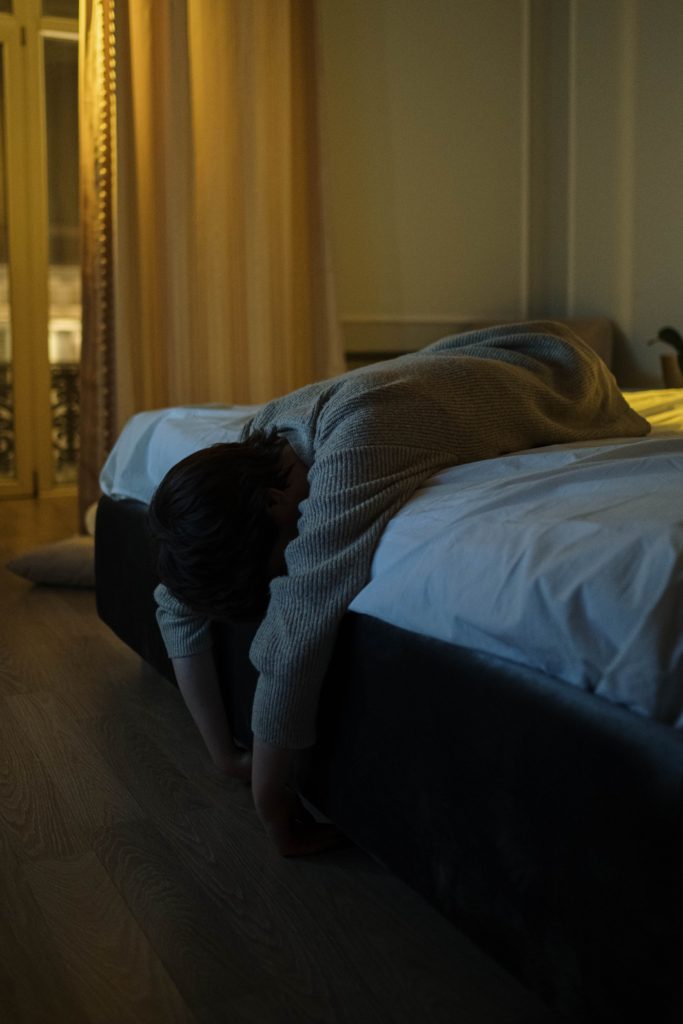“Sleep has been provided by nature to do the body’s healing work, and it takes seven or eight hours for this process to happen. Commit to getting at least seven to eight hours of good quality sleep every night to keep your body and hormones in balance.”–Suzanne Somers
Disclosure: This post contains affiliate links. Should you purchase any product through the links, I may earn a small commission, at no additional cost to you. Know that I stand behind all the products I promote.
Chances are that by now, you have come across at least one article talking about the importance of quality sleep for general health. The reality is that people are now sleeping less than they did in the past, and sleep quality has decreased as well. You cannot achieve optimal health without taking care of your sleep.
A good night’s sleep is as essential as eating healthy and exercising. When you get enough sleep, you’re less likely to get sick. Good sleep helps you stay healthy and lowers your risk for serious health problems like diabetes and heart disease. Furthermore, quality sleep is vital for various aspects of brain function; it can improve your focus, concentration, productivity, and performance. Good sleep can maximize problem-solving skills and enhance memory as well as enhancing your immune system.
Poor sleep affects hormones that regulate appetite. Not getting enough sleep has been shown to impair brain function. Conversely, short sleep duration is associated with an increased risk of weight gain and obesity in both children and adults. People who are not getting enough sleep (less than 7-8 hours) have a greater risk of heart disease and stroke. Additionally, sleep deprivation can cause prediabetes in healthy adults in as little as six days.
Sleep affects your body’s inflammatory responses. Poor sleep is linked to inflammatory bowel diseases and can increase your risk of disease recurrence. Sleep also affects emotions and social interactions; sleep deprivation may reduce your social skills and ability to recognize people’s emotional expressions. Not sleeping enough is strongly linked to depression.
In menopause, getting enough sleep is even more difficult. Many women experience sleep disturbances during and after menopause, as well as in the preceding years. Poor and disrupted sleep are common symptoms of menopause. This post will concentrate on the association between menopause and sleeping problems, such as insomnia. I will provide valuable information about how menopause affects sleep and what to do about it (the important role of hormonal changes.) I will also include soothing tips to sleep better with menopause symptoms.
What is menopause?
Menopause is a time of significant hormonal, physical, and psychological change for women-and all that change can wreak havoc on their sleep. It is a normal part of aging and marks the end of a woman’s reproductive years. Menopause typically occurs in a woman’s late 40’s to early 50’s.
A woman reaches menopause one year after her menstrual periods have stopped, which happens around age 52. A woman’s ovaries gradually decrease the production of estrogen and progesterone during perimenopause, a period of seven to ten years before menopause. These hormonal changes contribute to sleep issues that often continue into post-menopause, the period after menopause.
On average, around 12 percent of women experience sleep complaints. As women age into their late 40’s to early ’50s, that number increased dramatically to 40 percent. Sleep issues become more common and worsen during perimenopause to post menopause when women report the most sleep problems. Sleep problems are common, with sleep disorders affecting 39 to 47 percent of perimenopausal women and 35 to 60 percent of postmenopausal women.
How can menopause affect your sleep?
Women who have never had trouble falling asleep or staying asleep find that suddenly their rest is disturbed, or they can’t sleep at all. Sounds familiar? So, what does it all mean, and should you be concerned?
Menopause was once commonly referred to as “change of life.” That simple description seems appropriate based on all the emotional and hormonal changes a woman experiences during this time. It is worth noting that sleep issues are not solely the result of menopause. Women of middle age live with everyday stress and increasing responsibilities which can also be a part of sleep difficulty.
Going through menopause can affect your sleep cycle in three different levels:
- Hormone changes
Changes in hormones as we age can cause sleep disturbances, and sleep disturbances can alter hormone levels, turning into a vicious cycle. Sleep can affect around ten different hormones, and shifts in these hormones can cause changes in appetite, mental wellbeing, cardia health, and even fertility.
As the hormones diminish (estrogen, progesterone, and testosterone), so do their benefits. Before menopause, estrogen has enhanced sex drive, energy levels, cognitive skills, and mood. It helps the body use serotonin to aid in falling asleep quickly, staying asleep, and experience a higher quality of sleep. Estrogen also helps keep our body temperature low at night, and therefore more conducive to restful sleep. Estrogen also has an antidepressant effect.
As estrogen decreases during menopause, lack of estrogen leads to weight gain and fatigue. It affects concentration and mood and, in addition, produces anxiety and sleep disruption. Our sleep-wake cycle also changes as we age and loses its consistency. We begin to feel tired earlier and wake up earlier in the morning, leading to less sleep overall. This may also explain why older adults, including menopausal women, are at increased risk of insomnia.
Progesterone is a sleep-producing hormone, and it helps keep us calm and relaxed as these levels decrease anxiety and restlessness increase. Talk about moodiness!
Testosterone helps boost a woman’s sex drive before menopause. It contributes to energy levels and bone mass. Due to aging and menopause, testosterone levels will fluctuate and reduce, resulting in sleep disruption.
As a result, many women experience insomnia. Insomnia is generally an inability to fall asleep or persistent weakening’s for over three months. Menopause can be a key trigger of insomnia because of the physiological and psychological changes women experience going through menopause.
- Hot flashes
Hot flashes and night sweats are two of the most common side effects of menopause. As your hormone levels fluctuate, you may feel you have sudden increases and drops in your body temperature.
Hot flashes are caused by surges in adrenaline, which can rouse the brain from a sleeping state. This is the same chemical responsible for your reaction to stress or a fight-or-flight scenario. Therefore, many women who experience hot flashes also deal with insomnia.
- Anxiety, depression, and mood swings
Around 20 percent of menopausal women also experience depression. These shifts in mood can have a significant impact on sleep and may even lead to chronic insomnia. This can create a vicious cycle effect, as depression can also make an individual more susceptible to sleep disturbance and insomnia.
Many menopausal women struggle with anxiety and erratic, unpredictable changes to mood. In addition to mood swings that take you from sadness to anger to fear, women in menopause are also more likely to experience panic attacks and other physical symptoms of anxiety, including sweating and heart palpitations.
Natural tips for getting a good night sleep during the menopausal transition
Suppose menopause is keeping you up at night or stopping you from getting a quality night’s sleep. In that case, you can take steps to make falling and staying asleep easier and more relaxing.
- Follow a regular sleep schedule. Go to sleep and get up at the same time every day, including weekends.
- Get more exercise. Work out at regular times each day but not close to bedtime.
- Create a room that’s suited for sleep:
Keep your bedroom temperature as cool as you can handle. A solid recommendation is 65 degrees F.
Shut off any lights.
Stop any unnecessary sounds.
Consider trying products designed for better sleep.
Deep Sleep Pillow Spray

Ourea Weighted Blanket

- Avoid napping in the late afternoon or evening. It may keep you awake at night.
- Follow the same bedtime routine each night: read a book, listen to soothing music, take a warm bath.
- Try not to watch television or use your computer or mobile phone. The light from these devices may make it difficult for you to fall asleep.
- Wear loose-fitting nightclothes or wear nothing.
- Avoid eating large meals close to bedtime. A light snack or a glass of milk before bed won’t do any harm, but a big meal may be a recipe for a nighttime wake-up call.
- Stay away from caffeine (coffee, tea, chocolate) late in the day.
- Avoid alcohol. Even small amounts make it harder to go to sleep.
- Practice relaxation techniques: meditation or mindfulness to help reduce stress and worry.
- Avoid using sleeping pills.
The takeaway
The constellation of symptoms women experiences during menopause often add up to real struggles with sleep. Without enough quality sleep regularly, every part of your life can suffer-your health, your relationships, your energy levels, your work, and your daily performance-. Sleep and your quality of life are deeply connected.
Sleep issues are a common experience of menopause, but there are many options for relieving them. If your sleep problems persist, seek out a therapist trained in CRT (cognitive behavioral therapy) who has experience working with menopausal women. Let’s get inspired to live our best lives!

